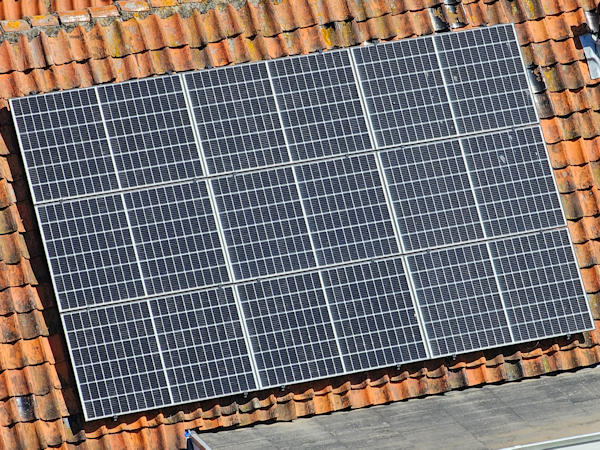The Hague · The announced abolition of the net metering scheme on 1 January 2027 in the Netherlands has caused significant upheaval in the solar industry. Manufacturers and installers of solar panels see their business models threatened, while supporters of the decision hope for a much-needed relief for the electricity grid. This article examines the net metering scheme's background, its abolition consequences, and the prospects for solar energy in the Netherlands.
The net metering scheme allows owners of solar panels in the Netherlands to offset the electricity they generate against their consumption. For example, if 2,000 kilowatt-hours (kWh) of electricity are generated annually and 2,500 kWh are consumed, the owner only pays for the difference of 500 kWh. Since its introduction, this scheme has been an important incentive for individuals and businesses to invest in solar panels.
The decision to abolish the net metering scheme is based on several factors. One of the main reasons is the financial burden on the electricity grid due to the sharp increase in solar power injection. Energy suppliers and grid operators have repeatedly pointed out that the scheme overloads the grid and endangers its stability. In addition, the scheme leads to significant revenue losses due to forgone tax revenues, costing the public sector several hundred million euros annually. The net metering scheme's abolition hits the Netherlands' solar industry hard. Many manufacturers and installers have tailored their business models and investments to the existing scheme. With the loss of the ability to offset generated electricity, the payback period for solar panels increases significantly. This could deter potential buyers and stall the solar energy market.
Despite the uncertainty, the abolition of the net metering scheme also offers opportunities. It could pave the way for innovative business models based on self-consumption and storage technologies. Domestic battery storage systems, which can store excess solar power and release it when needed, are gaining importance. These storage technologies are becoming increasingly competitive and could reduce dependence on the grid. Political support for solar energy remains strong despite the abolition of the net metering scheme. The Dutch government plans to intensify the promotion of storage technologies and create legal frameworks that make self-consumption of solar power more attractive. This is intended to ensure that the energy transition continues progressing and climate goals are achieved.
The abolition of the net metering scheme presents significant challenges for the solar industry in the Netherlands. At the same time, it opens up new possibilities for developing innovative solutions and technologies. The key will be how quickly and effectively the industry adapts to the new circumstances and what support measures the government provides to facilitate the transition. The future of solar energy remains promising despite all the challenges if all stakeholders work together towards sustainable solutions.
Net Metering in Germany
Germany has no direct equivalent to the Dutch net metering scheme. Instead, the Renewable Energy Sources Act (EEG) supports operators of photovoltaic systems through a fixed feed-in tariff for electricity fed into the grid and enables self-consumption. Operators can use their excess solar power and feed it into the grid when needed. A key difference is the EEG surcharge levied on self-consumed solar power to finance the energy transition. Additionally, many operators rely on battery storage to maximise self-consumption and reduce dependence on the grid. Both countries pursue the goal of the energy transition with different approaches.
More Battery Storage in Germany
The differences in the spread of battery storage between Germany and the Netherlands can be attributed to various factors, including differences in energy policy, financial incentives, market and technological awareness, and the structure of electricity prices and grid capacities. In Germany, targeted support programmes and financial incentives for installing battery storage have been in place. These programmes, such as the KfW support programme, financially assist homeowners and businesses in purchasing storage systems. These incentives are largely absent in the Netherlands, which reduces the attractiveness of battery storage there.
In Germany, an EEG surcharge is levied on self-consumed solar power, increasing the economic benefits of self-consumption and, thereby, battery storage. By storing and using the generated electricity later, operators can reduce the grid electricity costs and the EEG surcharge. In the Netherlands, the net metering scheme is more attractive because it allows the generated and fed-in electricity to be offset one-to-one against consumption. This eliminates the economic pressure to maximise self-consumption and reduces the need for battery storage.
Due to earlier political measures and broad public support for the energy transition, the German market is more geared towards renewable energy and associated technologies, such as battery storage. There is a higher awareness of the benefits of energy storage in Germany, leading to higher demand. In the Netherlands, this awareness is less pronounced, and the demand for battery storage is correspondingly lower. The structure of electricity prices can also play a role. In Germany, end-user electricity prices are relatively high, increasing the financial attractiveness of self-consumption and battery storage. In the Netherlands, electricity prices are comparatively lower, reducing the financial incentive for investing in battery storage.
Both countries face problems with grid capacity and stability, as many grids are fully loaded. In Germany, this leads homeowners and businesses to invest in battery storage to maximise the use of self-generated electricity and avoid grid overloads. Although the same problems exist in the Netherlands and battery storage could also help, the incentive to invest remains lower due to the more economically attractive net metering scheme.





